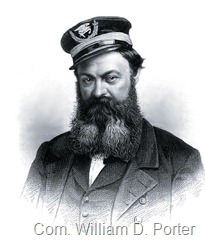July 30.—The rebel Colonel, John H. Morgan, reported to Major-General E. Kirby Smith, commanding department of East-Tennessee, the result of his expedition into Kentucky. He left Knoxville, Tenn., on the fourth, with about nine hundred men, and returned to Livingston, in the same State, on the twenty-eighth instant, with nearly twelve hundred men, having been absent twenty-four days, during which time he travelled over a thousand miles, captured seventeen towns, destroyed the Government supplies and arms in them, dispersed about fifteen hundred home guards, and paroled nearly twelve hundred regular troops. He lost in killed, wounded, and missing, of the number that he carried into Kentucky, about ninety.—(See Supplement.)
—The bells contributed to the rebel government, by the churches, planters, and others, to be cast into cannon, and seized by Gen. Butler at New-Orleans, were sold at auction in Boston, Massachusetts.
—The Bishop of Oxford, England, addressed a letter to the archdeacons in his diocese, directing them to instruct their clergy as follows:
“You are earnestly desired to make your supplications to Almighty God, who is the author of peace and lover of concord, that he will promote peace among our brethren in America, and inspire their hearts with Christian unity and fellowship.”
—John R. Lee, Acting Master of the United States steamer E. B. Hale, with a party from that vessel ascended Todd Creek, Ga., and destroyed a salt manufactory in successful operation on the plantation of H. H. Floyd.
—A band of guerrillas under the lead of Joe Thompson, (many of whom had taken the oath and given bond,) entered Paris, Ky., cut down the flag-pole, took the Sheriff and the clerks of the Circuit and County Courts prisoners, forced the keys of the jail from the jailer, set at liberty a man who was indicted for murder in the first degree, demanded of the Sheriff the warrant of commitment and all the money which he had collected for taxes, but he having disposed of it, they got none. They took the two clerks to the jail, in a room of which was the Clerk’s office, and forced the Clerk of the Circuit Court to deliver such indictments as Joe Thompson wanted. They took from some of the stores such goods as suited them, amounting to hundreds of dollars, pressed a wagon, and then loaded it and drove it off, forced the people to deliver their money, furnish them supper, etc. About night some four hundred joined them, also taking supper. After dark they left, taking off one prisoner. They were followed by a party of the Ninth Pennsylvania cavalry, under Lieutenant-Colonel James, who overtook them, killing twenty-seven and capturing thirty-nine, thirty of whom were wounded.—Louisville Journal.
—An attempt to capture the steam-tug Achilles, lying off Harrison’s Landing, on the James River, Va., was made by a party of rebels from the south side of the river, but they were driven off.



